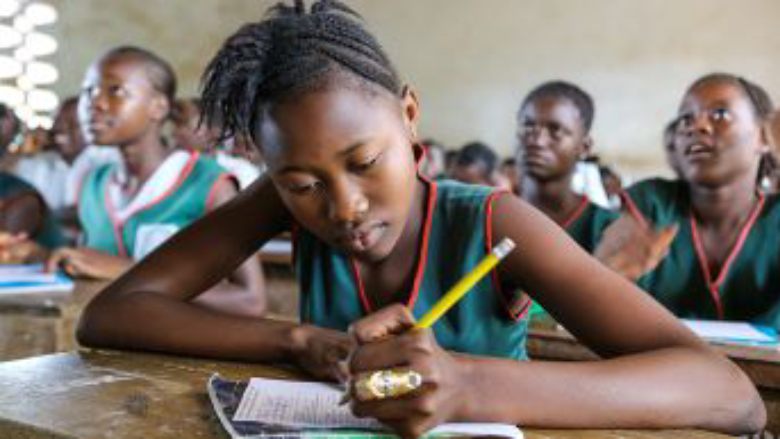Overview
At the request of the new Regional Vice President for Western and Central Africa, Ousmane Diagana, a new regional education strategy (2022-2025) is currently under development. The strategy will cover the entire education spectrum (i.e., early childhood development, primary and secondary education, technical and vocational education and training, higher education and research, lifelong learning). The Vice President also established an External Advisory Panel (EAP)1 to guide the preparation and implementation of the strategy. The EAP consists of relevant education leaders and experts with deep experience and knowledge of the region. In addition, these members served and will continue to serve as champions and ambassadors for advancing the education cause in the region.
Western and Central Africa is a vast sub-region with diverse cultures, beliefs, languages, and lifestyles. Home to about half a billion people, the sub-region2 is rich in resources and opportunities at all levels.
Yet the potential of the region is tempered by persistent gaps in education and skills, as highlighted by the Bank’s Human Capital Index. Moreover, COVID-19, conflicts, food insecurity, population growth, and the disruptive forces of climate change threaten to further curtail or even reverse the progress that has been made over the past decades. For example, Western and Central Africa has made tremendous gains in expanding access to education in the past two decades, but COVID-related school interruptions are expected to decrease learning outcomes and increase drop-out rates, especially among girls.
The World Bank is a dedicated partner for Western and Central African countries, helping them deliver strong development outcomes for their people by focusing on priorities detailed in the World Bank’s Africa Human Capital Plan. Aligned with that plan, the region’s active education portfolio is approximately $3 billion with another $2 billion in the pipeline. The Bank’s commitments per fiscal year to education in Western and Central Africa have tripled since 2018.
Consultations with stakeholders and strategic partners in the region - including representatives of development partners, the public and private sector, civil society, academia, parents, teachers, school leaders - are key to inform the Bank’s strategy. This online consultation platform is one but not the only method to engage with stakeholders in the region.
To this end, during the online consultation period, we are inviting stakeholders and strategic partners to provide feedback on the following topics: (1) the most binding constraint to improving education outcomes in the region; (2) innovative policies, programs and tools that have been or can be successfully adopted at scale to improve education outcomes; (3) how the World Bank can leverage its role in the region to further stimulate regional and national discussions on the power of education; and (4) the identification of upcoming high-impact opportunities that the World Bank may consider for engagement on its education strategy.
Your views are welcome!
The World Bank Group welcomes all views and regards them as essential inputs into the new Western and Central Africa Region Education Strategy to ensure that we provide effective support for the region in achieving inclusive and equitable quality education for all. The new strategy is slated for completion in December 2021.
Contact
Mr. Jason Allen Weaver, Senior Economist, World Bank Group.
1. EAP Members: 1) Mr. Yaw Adutwum, Minister of Education, Ghana; 2) Ms. Yosola Akinbi, Coordinator of Core Working Group on Human Capital, Nigeria; 3) Mr. Mossadeck Bally, CEO, Azalai Hotels, and businessman; 4) Ms. Claude Borna, Managing Director and CIO at Sèmè City Development Agency; 5) Mr. Mary Teuw Niane, former Minister of Higher Education, Senegal; 6) Mr. Godwin Nogheghase Obaseki, Governor of Edo State; 7) Mr. David Sengeh, Minister of Education, Sierra Leone; 8) Ms. Nebghouha Mint Mohamed Vall, former Minister of Education, Mauritania; 9) Ms. Zouera Youssoufou, Managing Director and CEO of the Aliko Dangote Foundation; 10) Ms. Mavis Owusu-Gyamfi, Executive Vice President of the African Center for Economic Transformation (ACET); 11) Mr. Jean Louis Sarbib, former World Bank Vice President of Human Development and former Vice President of Africa; 12) Mr. Dautarim da Costa, former Minister of Education, Guinea-Bissau; 13) Mr. Ernst Mada, Director of Cabinet in the Prime Minister’s Office, Central Africa Republic; and 14) Ms. Marietou Kone, Minister of National Education and Literacy, Côte D’Ivoire.
2. Within the World Bank, Western and Central Africa includes Benin, Burkina Faso, Cameroon, Cape Verde, Central African Republic, Chad, Congo (Republic of), Côte d’Ivoire, Equatorial Guinea, Gabon, Gambia (The), Ghana, Guinea, Guinea-Bissau, Liberia, Mali, Mauritania, Niger, Nigeria, Senegal, Sierra Leone, and Togo.
